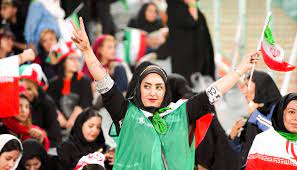Ageing regime : On Iran’s hijab protests
Iran’s failure to usher in political and social reforms is triggering violent protests
The death of a young Iranian-Kurdish woman while in the custody of the morality police has triggered nationwide protests in the Islamic Republic, bringing the clerical regime under public pressure yet again. Twenty-two-year-old Mahsa Amini had been detained earlier this month for allegedly wearing the hijab ( headscarf ) in an “improper” way. The authorities attributed her death three days later to a heart attack while being trained on hijab rules, but her parents and activists say she was beaten to death. The incident triggered widespread anger in a country where state suppression of women’s rights and resistance has always been a big political issue. Several cities, including Tehran, the capital, and Mashhad, a conservative city that hosts one of Shia Islam’s holiest shrines, saw demonstrators chanting slogans against the clerical establishment and women publicly burning hijabs. Rights groups say some 36 people, including security personnel, have been killed in seven days. These are the most notable mass protests since the 2019 agitations sparked by a rise in fuel prices, and a key political challenge for President Ebrahim Raisi, who took office last year. As in the past, the regime has made it clear that it would use force to quell the protests, with the Revolutionary Guard Corps terming the protesters “ traitors ” and urging the authorities to “crush” them.
The mandatory hijab rules were introduced in 1981, two years after the revolution that saw the fall of the Pahlavi monarchy and the seizure of power by the Shia clergy. While the Mullahs have since built a system of clerical dictatorship with limited democratic practices, two things have remained constant — state-sponsored conservatism and social repression. This model also produced constant tensions between the rulers and the ruled; those tensions have become more prominent in recent years as the political experiments to reform the system from within failed and economic miseries mounted because of American sanctions. In the last 25 years, Iranians elected two reformist Presidents for two terms — Mohammad Khatami in 1997 and Hassan Rouhani in 2013. But they failed to make any substantial reforms in the political system, which is tightly controlled by the clerical establishment. The lack of reforms and ballooning economic and political pressure often triggered large-scale protests and violent repression — in 2009, 2019, and now in 2022. Protests are part of the political culture in democracies. But in a dictatorship that claims the legacy of a politico-religious revolution, repeated protests chanting slogans such as “death to the dictator” are signs that the Islamic revolution is ageing. Iran’s clergy should learn from the social strife and be ready to address the larger problems that its state and society face.
(Source: The Hindu, it is meant for educational purposes only)
